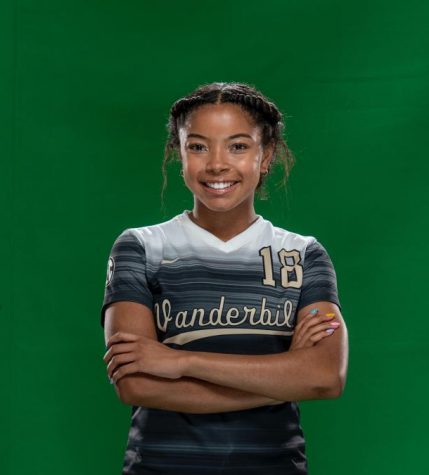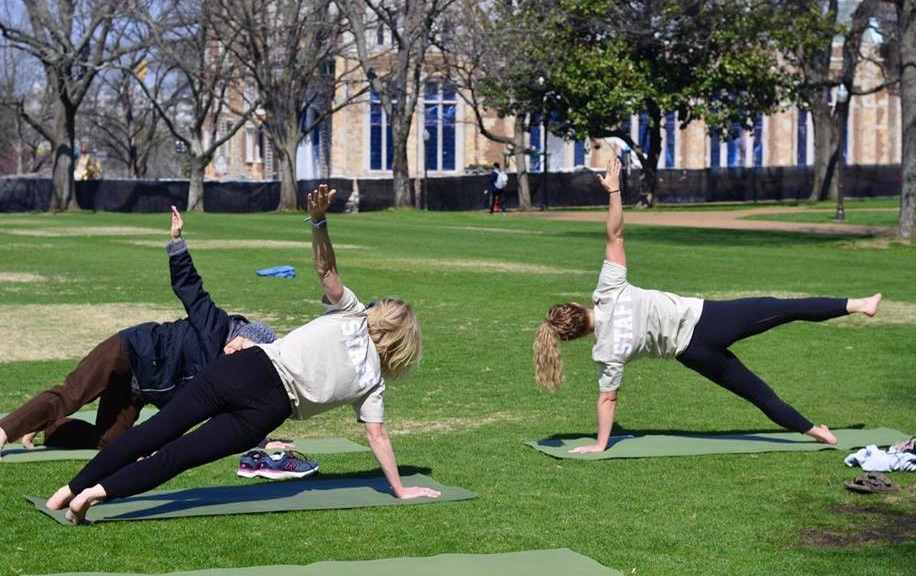
As I have said from the beginning of my series on student-athlete life at Vandy, we have an amazingly unique opportunity to pursue our dreams with our best friends. But there is a completely different side to life as a student-athlete. In my first article, I wrote, “As student-athletes, we’re challenged every day to excel in the classroom and on the field. Some days, it’s hard—really hard—to balance all of the responsibilities that come with this lifestyle.” In this article, I want to expand on this statement because balancing a student-athlete lifestyle is an extremely difficult challenge.
Many of my fellow student-athletes have told me that they cling to their respective sports because they provide an outlet or an escape from the added stress of our schoolwork. But as student-athletes, we balance more than just our athletic and academic lives. Just like any other student, there is a whirlwind of outside factors that contribute to our day to day mental well-being. The student-athlete life consumes most of my time and energy, but I can’t simply turn off the pressures I feel as a result of my family, personal relationships and health. The truth is, all student-athletes have struggled one way or another because we test the limits of our bodies and minds every day, and it’s exhausting. After a while, the recurring knee pains, strained hamstrings and sprained ankles start to affect more than just our physical health.
The intensity of D1 athletics and the rigor of an elite education can slowly begin to take a toll on many of our mental fortitudes as the days and nights seem to get longer as the school year goes on. As a student-athlete, I love what I do, and I’m thankful for the opportunities I have every day, but I’m are also not immune to those same emotional breakdowns and mid-shower cry sessions that every student experiences. As I said, some days, it’s hard—really hard—when the feelings from a hard practice, bad grade or a particularly tough conversation with your friend hit you all at once. Not to mention, like many other students, I get a little homesick. Yet, Vanderbilt athletics has also pledged to prioritize the health of its athletes, and this includes mental health as well.
Independent of the athletics program, there are a plethora of resources that all Vanderbilt students have access to for support of their health and wellness, including the University Counseling Center (UCC). Within athletics, however, student-athletes also have resources readily available for those times when we inevitably struggle. Vickie Woosley is an invaluable part of our support system in athletics. She is our in-house sports psychologist who works with athletes on an individual, needs-based basis to work through any issue, ranging from performance anxiety to depression. I know many people who value their time with Vickie and credit her for their ability to push through some very difficult circumstances and limitations.
Individual teams have also implemented different tactics that focus on the mental health aspect of every athlete. For example, every Wednesday the Women’s Soccer Team fills out wellness check surveys with three simple questions that ask about our physical, emotional and mental health. The team is asked to rate these three categories on a scale of 1-4 (1 being the worst). If I were to give myself a 1 in any category, a coach would reach out for a meeting or casual conversation to talk about my week outside of soccer. Although these surveys typically take two minutes or less, we know that we have the support of every one of our coaches and athletic trainer. That type of care doesn’t go unnoticed, especially during a particularly challenging time. In addition to these surveys, we also do yoga as a beneficial mind-body approach to help us relax and reenergize. Other sports, such as football, also mandate that their athletes participate in other activities for mental health purposes like yoga or meditation.
As athletes, we endure hard days, physically and mentally, but we also have a built-in support system within our teammates and friends. Those relationships make student-athlete life so special because the people I turn to in the locker room for emotional help are also the same people who grind with me on the field every day. Nevertheless, we also have the help available from Vanderbilt athletics as well. The life of a student-athlete requires a delicate balance between our mental and physical health—in addition to all of the other factors I already talked about—but even on our hardest days, we know better days are to come as we work every day to make the most out of our college experience.





kovaisky yoga • Nov 1, 2019 at 6:42 am CDT
Yoga is a natural method to get rid of the tension accumulated daily, both in the physical and mental body. Indeed, postures and pranayamas are effective techniques to release stress, often manifested as contractures in the neck, back and joints.